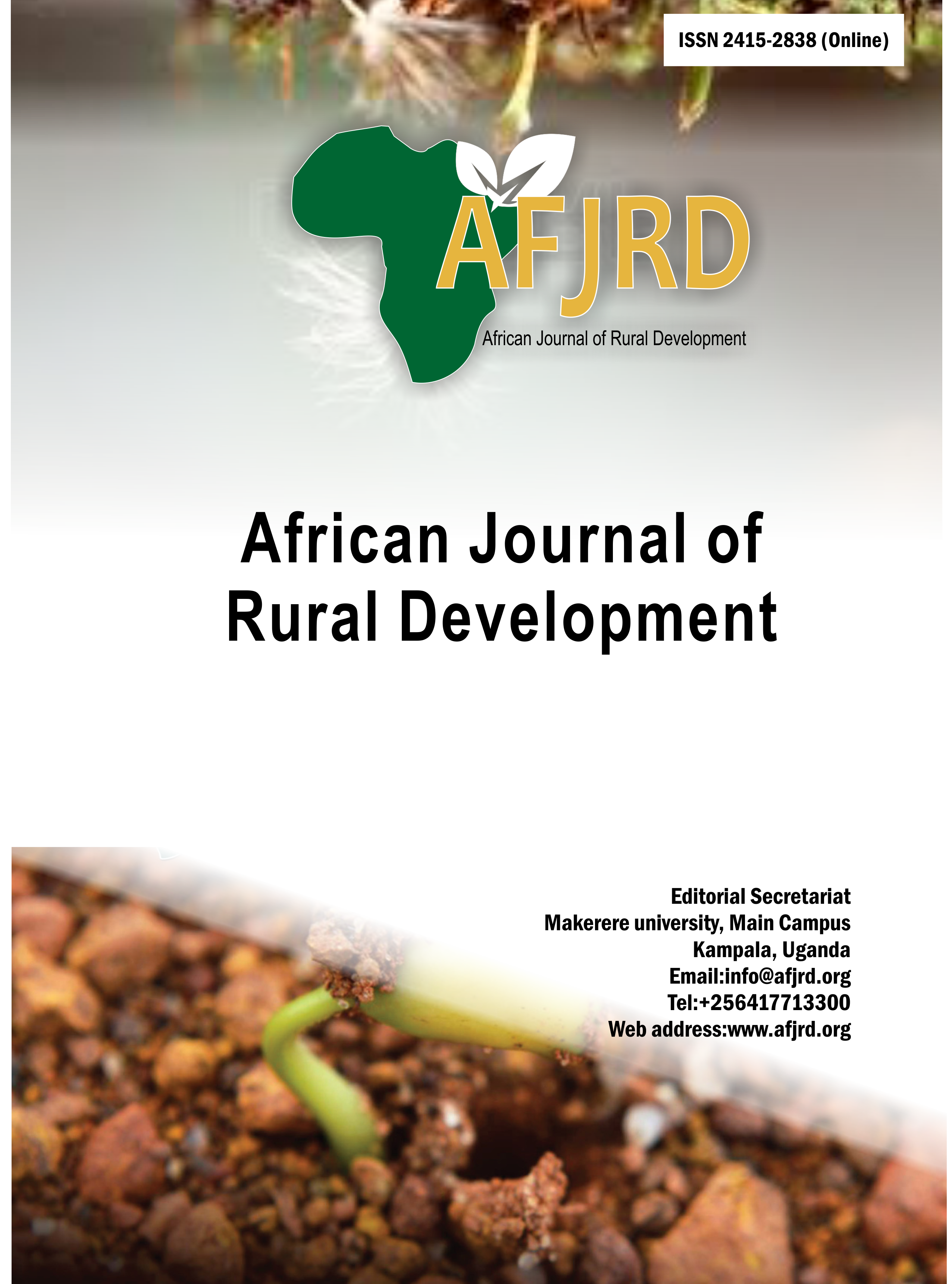Agricultural production, food nutrition and capacity building in higher education in Africa
Main Article Content
Abstract
Agriculture is a vital activity that sustain millions of people livelihoods and build local, national and regional economies. Progress in agricultural development is expected to translate in living standards in rural areas, commodities value chains and commercialization. However, in Sub-Saharan Africa, rural development faces a number of challenges such as poor soil restauration and agronomic practices leading to low agricultural productivity. Adding to this is the daunting task of securing food and enhancing food nutrition for the continent. This editorial of the African Journal of Rural Development introduces eight peer- reviewed journal papers that reflect on three key gaps areas deemed important for Africa in realizing the aspirations of the Agenda 2063. These include education, food nutrition and agriculture, including soil/agronomic practices, livestock and forestry. The information presented in these papers provides interesting insights on (i) soil fertility and soil water management through use of biochar produced from locally available sources as well as the need for monitoring of nitrate loading even at small scale; (ii) factors affecting citrus production and sawmill profitability and sustainability of wood resource utilization; (iii) production practices and quality defects of hides and skins, and gastrointestinal parasites in Angora goats; (iv) food nutrition and dietary intake patterns among agricultural households; and (v) capacity building the field of higher education, particularly the experiences on the implementation of the Intra Africa training initiative established by RUFORUM. It is our hope that the readers will find these information relevant for their own use and application in their respective
Article Details

This work is licensed under a Creative Commons Attribution 4.0 International License.
